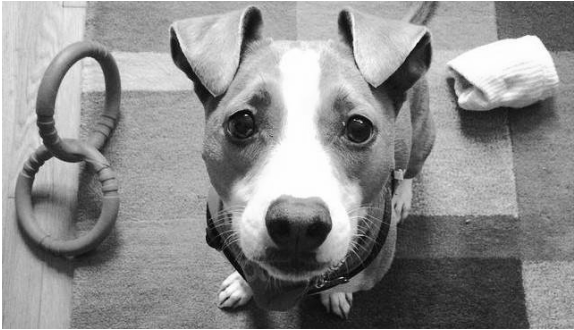|
One of the great joys of working with clients across the US and internationally is that I interact with people of wonderfully diverse backgrounds—ethnic, racial, geopolitical, vegetable, animal, mineral—okay, maybe not the last three. As a career coach, I help job seekers leverage their background and core values (“where the client comes from”) as motivation to accelerate their job search or career development (“where the client wants to go”).
If you look at my photo on the About page, you’ll see that I’m a (formerly blond) white male and you might think: this guy knows nothing about discrimination. So here’s a story that might get you thinking otherwise: after college, my first job was as a support specialist for an executive job search company. That’s just a glorified way of saying that I was a customer service representative for job seekers looking to make $100K+. In other words, the customers were much more successful and wealthier than me. In addition to helping America’s VPs and CEOs navigate the company’s online job search platform, I would offer industry advice, resume tips and interview strategies. It was an incredible experience for a 22-year-old kid to be offering counsel to the often-entitled, sometimes-pleasant, usually-affluent power players of the world. Needless to say, I learned a lot on the job. One fine day at work, I answered a call from a gentleman who was livid about his experience with the company’s website. Before I could gather the necessary information to assist him, he asked to be transferred to another representative. At that moment, no other agents were available (we were a small and nimble team). As I tried to understand the root of his problem, he cut me off and asked to speak to someone “who has English as a first language.” After a few awkward moments, I transferred him over to my manager. Now, before I get to the ironic twist, let me give you some background: my spoken English is above average; I studied linguistics and psychology in college on American soil; I am pretty well-read as far as English literature is concerned; I’ve taught English on several continents; I am a naturalized US citizen who passed his citizenship test with flying colors; and I am the resident “grammar Nazi” among my friends. More pertinently, I don’t have a discernible accent. In fact, people who don’t know that I grew up in both Poland and New York City guess that I was raised “somewhere out west,” often citing Colorado. Which reminds me, that’s another beautiful state to add to my travel bucket list. So why did this Irate Ira (not his real name) refuse to speak with me? I’ll never be 100% sure, but I’ve got a good hunch. When I picked up the phone, I introduced myself as “Dawid” (pronounced “Dah-veed”), which is my birth name. I do this because I want to stay true to my given name, although it is nothing more than the Polish form of “David.” The man on the phone didn’t give me a chance. Maybe he thought I was sitting in a call center somewhere in Asia, with a clearly foreign name, and therefore unable to understand his issue or help him in any way. It was unfortunate, and at the moment the insult stung, but in my desire to remain professional, I fulfilled his request and transferred the call to my manager, who was sitting within earshot. The irony, explained: It turns out that the reason this man was so frustrated was because his “saved search” for relevant jobs on the website was not yielding any results. And that was because he had misspelled several keywords, including (and I can’t make this up) the word “international.” It appears he was looking for job openings with an international scope, but a manual typo in the search query led to null results. The sharp irony of this experience cut me on so many levels. First, this likely American-born customer had careless typos on his website, which directly impacted his ability to benefit from the service. And he had the idea to think less of my abilities because of my un-American name. Secondly, he was interested in jobs with a global scope, but—at least in this instance—he demonstrated little respect for his international fellow human beings. This was one of those rare moments in my life that my naiveté was painfully shattered. I was in my early 20’s, wide-eyed and eager to help this man, but he let his pride and prejudice stand in the way of a resolution. I’m generally not a fan of schadenfreude, but that day I came pretty close. The lesson: if you’re a job seeker, you should make it a point to spell words correctly, whether it’s on a job search website, a resume, a LinkedIn profile, a blog article you’ve penned, or anywhere else for that matter. Also, please be compassionate and kind to people you encounter, whether in person or on the phone: you never know which connection might lead to an interview or job offer; plus, it’s just a good thing to be kind to your fellow humans. Remember, karma can be a [female dog]. In fairness, this was an exception. I had always introduced myself as “Dawid” and roughly 99.9% of customers had a neutral or positive reaction to my atypical name; often, they were curious about its origin and showed genuine interest in my explanation. The experience with the bigoted customer reminded me of when I was a boy, fresh off the plane from rural Poland, and just starting to settle in Greenpoint, Brooklyn. Other kids started teasing me, calling me “Polak.” But rather than letting it get to me, I responded by explaining to them that “Polak” was actually the Polish word for “Polish man” and not a diss. I lauded them for the compliment and said I was impressed with their ability to speak Polish. Of course, the kids were confused, but it was my way of getting the bullies off my back. Sometimes you have to get creative. Dawid vs. Goliath-style. Now that I’m much older, and (hopefully) somewhat wiser, I try to leverage all the lessons from my own life, and glean the good from the bad. Since my clients come from all over the country (and the world), I have a deep-seated respect for the challenges that come from diverse backgrounds. One tip that I’ve used in my own job search back in the day is to adopt a nickname. My resume used to say Dawid Wiacek. And I never got as many recruiter calls or interviews as I thought I could. As soon as I changed my resume name to David Wiacek, or even Dawid (David) Wiacek, I noticed that the frequency of recruiter calls increased, as if overnight. Was the lack of recruiter interest all because of xenophobia? Well, it’s not that everyone is evil, or racist, or out to get me. Some people might think less of me because of my name, but I don’t think that’s the majority. I think other factors were at play. First, maybe some folks thought “Dawid” was a typo, and that would look pretty unprofessional on a resume. Secondly, some recruiters might not have known whether I was male or female (100% male, last time I checked!). Or they simply didn’t know how to pronounce my name. It would be awkward to pick up the phone to ask for me. If a recruiter was looking at my resume versus the resume of John Smith, all other things being equal, they might choose to call John first. I know it sounds preposterous to some of you, but humans are indeed flawed and biased, and we generally try to steer clear of awkward situations. Recruiters, candidate sourcers and hiring managers are no different. At first I thought I was “selling out” by changing my name on the resume from Dawid to David, but then I realized that I was doing both myself and the prospective employer a service. If I was indeed a strong fit for the role, I’d get the interview, and then if I landed the job, I could ask my new boss and colleagues to call me by whatever name I desired. It was a small price to pay. And Dawid by any other name would smell as sweet, no? All this is the reason my website URL is davidthefixer.com and not dawidthefixer.com. I’m also a copywriter--and who would hire me if they thought that Dawid was a misspelling, as some people do? “David the Fixer dot com” is a lot more memorable for marketing purposes, e.g., when I’m at the airport, on the street, in the subway, etc. It sticks in prospective clients’ minds. Concluding this long treatise, I am aware that job candidates of all backgrounds face discrimination far worse than what I have personally witnessed, but my own experience was real. It has helped to ground me, and has provided me with gratitude and compassion for my career coaching clients, partners, vendors and yes, the occasional “Irate Ira.” I believe it makes me a more effective career coach, a more compelling copywriter, and a more caring citizen of the world. If you’ve gleaned any lessons from your own experience with discrimination (whether based on race, ethnicity, gender, or any another type), either in the workplace or during the job search process, you’re welcome to share your story in the comments below. Thank you for reading and sharing. Have a beautiful day. -Dawid (David) Wiacek David is a career coach and copywriter. He helps professionals find more meaningful, better-paying jobs; he also crafts compelling copy for small-to-medium size businesses, both for print and digital media.
0 Comments
A year ago, I got my first dog (a pit bull-chihuahua mix, if you can believe it). Nacho has since been my partner in crime through many career coaching calls and client meetings. As I began to observe Nacho’s behavior early on, I couldn’t help but draw several parallels between his canine conduct and a successful job search.
1. Develop a routine. For starters, Nacho begins each day with a pronounced stretch right before his long morning walk. Then there’s a lot of sleeping, eating, and staring out the window. Looking for a job can be mentally and physically draining, and having a routine that includes stretching and exercise gets you ready for the day’s challenges. Because the job search can take months, a routine helps you stave off the job search blues and keeps you focused for the long haul. Here’s a sample weekly routine some of my clients follow: Monday: bookmark new job postings, Tuesday: tweak resumes and cover letters, Wednesday: submit applications, Thursday: network online and off, Friday: follow up, write blog posts, and reflect on the week’s progress. You don’t have to follow this example, just find a rhythm that works for you and stick to it. If you experience a job rejection or a mental rut, you’ll have a familiar routine to fall back on. 2. Sniff out the competition. Nacho respectfully sniffs out other dogs he meets, whether they’re tiny teacup Yorkies or labs five times his size. In the job search, carve out ample time to research the industries and companies you’re targeting. Whenever possible, scope out your direct competition, that is, the other job candidates vying for similar jobs. What soft and technical skills do they have that you may be lacking? What can you learn from the successful candidates--and from the miserable ones? Conducting this “research” involves nothing more than heading to your local bar and, drink in hand, observing and talking to people. Of course, plenty of folks share their job search stories online. Take other people’s narratives with a healthy grain of salt, but don’t ignore them. You may be surprised by how much you learn. 3. Learn to follow basic instructions. When Nacho is told to sit, he sits. When he’s asked to raise his paw, he does just that. Similarly, when a job application specifically asks for a Word .doc version of your resume, make sure to attach it, even if you’re a staunch proponent of PDFs. After all, the recruiter (or the applicant tracking system software) might dismiss your application just because you’ve failed to follow basic instructions. Likewise, if you’re told that your interview begins at 1pm, don’t show up at 12:30. Your overzealousness won’t be misconstrued as insubordination, but it will inconvenience the interviewer’s schedule, or at least make you restless from all that idle waiting. At the most, show up 5-10 minutes early, unless the recruiter suggested otherwise. 4. Brush up on relevant skills. Nacho loves exploring new ground, literally. His tail wags passionately when he encounters foreign objects and strangers. There’s an elementary school across the street, and each night as Nacho walks by it, he gets wildly excited. Maybe he’s thinking about night school? To remain marketable in the ever-changing job landscape, you need to keep your knowledge and skills sharp. This is true of every industry, but especially highly-evolving ones like IT, biotech, media and marketing. Whether this means going back to school or casually exploring the smorgasbord of online resources, never stop learning. At worst, you’ll discover something new or realize you don’t want to follow a certain career path. At best, you’ll leverage your newfound skill set to land your next job. 5. Sleep like a dog. Snoozing is possibly Nacho’s favorite activity, next to having his belly rubbed. I could pull any sampling of random statistics touting the benefits of sleep (including Arianna Huffington’s The Sleep Revolution), but I’ll just take a page from what I observe directly: sleep-deprived employees are not functioning at their best. Even the passionate workaholics who appear ever-so-busy could accomplish a whole lot more, and avoid burnout, if they allowed themselves a bit more shut-eye. Cognitive faculties such as decision-making and creativity are significantly compromised by insufficient sleep. There is a mountain of advice on how to improve your sleep; find something that works for you. At worst, you’ll improve your heart, immune system, and mood. At best, you’ll achieve all that and you’ll be more productive and happier at work, which often leads to bigger and better things. 6. Have a social presence Even Nacho has an Instagram profile. Like it or not, recruiters are constantly checking out job candidates’ online profiles. The good news is that you can, to a large degree, control your image and social media "brand." So don’t be passive; don’t let others define your image. Curate it yourself. Beef up that LinkedIn profile. Remove old or inactive website profiles and de-clutter your online presence. If you haven’t already, consider starting a blog that is relevant to your industry. Or build a simple, one-page personal portfolio website. There are plenty of great examples online if you need inspiration. And if you need a quick break from all that job search stuff, check out @mydognachodog on Instagram. Guaranteed to make you smile. |
About DawidPoly-creative and complex human who fills up his days as a career coach, executive coach, resume writer, and personal brand / communications specialist. Conqueror of excuses and doubts. Bakes a mean éclair and snaps thought-provoking photos, but is best known for helping clients achieve personal + professional growth and fulfillment. Archives
March 2024
Categories
All
|



 RSS Feed
RSS Feed